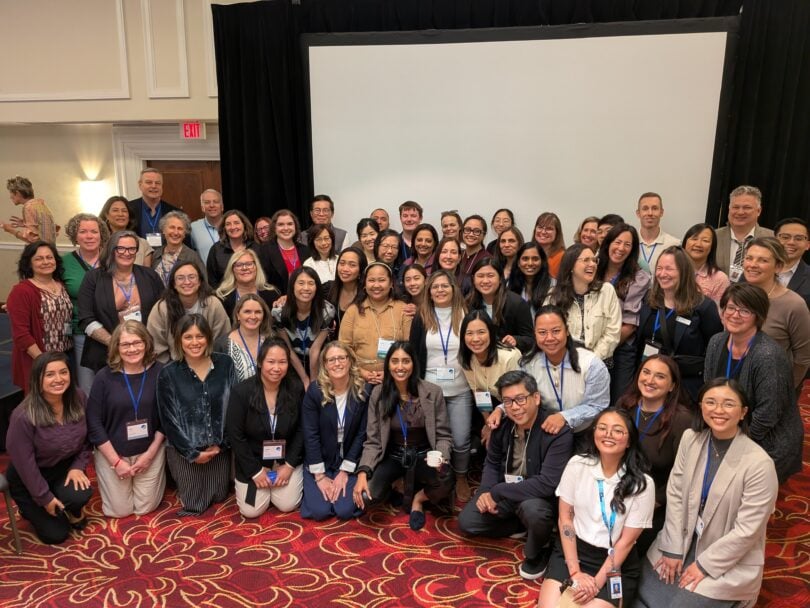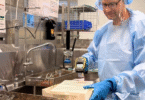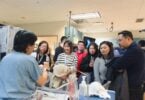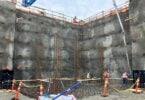“We’re witnessing a pivotal moment where the conversation about aging is fundamentally shifting from managing decline to engineering vitality,” says Jennifer A. Gibson, MSN, PhD, RN, Executive Director of Professional Practice/Quality Practice Environments at Providence Health Care and Executive Director of Quality, Practice & Program Development for Seniors Care at Providence Living. “When you bring together lived experience with cutting-edge research and innovative practice, you create the conditions for breakthroughs that will transform how we age, not just in Canada, but globally.”
The West Coast Conference on Aging, held June 19-20 at Vancouver’s Pinnacle Hotel Harbourfront, proved Dr. Gibson’s point. This wasn’t just another health care conference, it was a collision of visionary thinking that challenged every assumption about what’s possible in seniors care.
Conversations that shatter assumptions
The hidden crisis in plain sight
When Leila Goharian from Vancouver Coastal Health presented her research on malnutrition screening, her team’s findings revealed that malnutrition among home-bound seniors was far more prevalent than anyone realized challenging every health care leader present to confront an uncomfortable truth about a critical health crisis hiding in their own communities.
Goharian’s work, conducted with dietitians Sepideh Sarbazi and Andrea Brand, developed standardized screening tools that are already being nominated for BC Quality Awards and implemented across health authorities. But more importantly, it sparked conversations about what else we might be missing.
Redefining what independence means
Indershini “Desh” Pillay’s presentation on The Independence Model (TIM) challenged the healthcare sector’s fundamental assumptions about recovery and aging. With over 30 years of experience, Desh has developed approaches that don’t just prevent decline, they actively restore function.
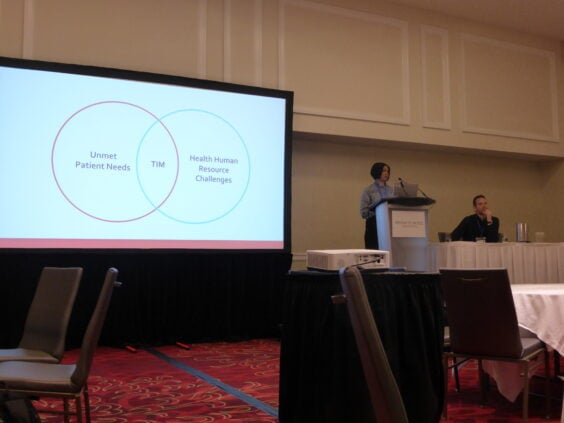
“Traditional models ask, ‘How do we manage this person’s limitations?'” Desh explained to the packed ballroom. “TIM asks ‘How do we restore this person’s possibilities?'” Working alongside Eduardo “Eddie” Naranjo, a physiotherapist and nurse who came from Spain to pursue advanced degrees at UBC, their team demonstrated how interprofessional collaboration can literally give people their lives back.
The audience wasn’t just hearing about theory, they were witnessing a paradigm shift that’s already transforming patient and resident outcomes at Providence Health Care and creating ripple effects across the continent.
The power of lived experience driving change
“Nothing About Us Without Us”
Perhaps no presentation captured the conference’s transformative potential better than Lisa Dawson’s session on family engagement in long-term care. Lisa’s journey began when her father moved into care in 2011, but her presentation revealed how personal experience can drive systemic change.
As Chair of the Vancouver Coastal Association of Family Councils and board member of the Independent Long-term Care Councils Association of BC, Lisa has spent over a decade proving that families aren’t just visitors, they’re partners in care whose insights can revolutionize quality and outcomes.
“The conversations around lived experiences raise the collective voice, ideas are born, and quality improvements are made,” Lisa told attendees. Her work demonstrates how authentic engagement doesn’t just improve individual experiences; it transforms entire systems of care.
Culture change from the ground up
Anastasia “Tasia” Tsatsanis and her team’s presentation on the “Home for Us” model revealed how empowering front-line staff creates transformation that ripples through entire organizations. Working with recreation therapy specialist Vinnie Tang and occupational therapist Deb Chmelauskas, their approach shifts care environments from institutional to social-relational.
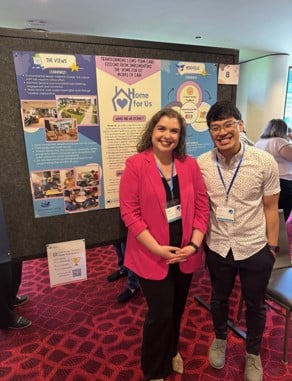
Their model represents a transformative approach that emphasizes nurturing connections and enabling residents to lead fulfilling lives aligned with their individual preferences. The real power of their presentation was showing how grassroots change, supported by appreciative inquiry, creates sustainable transformation that spreads across entire healthcare systems.
Research that changes everything
Measuring what matters
Dr. Amy Salmon, the inaugural Conconi Family Foundation Distinguished Scholar, presented early findings from her team’s evaluation of Providence Living at The Views that left healthcare leaders rethinking their approach to measuring success. Working with environmental gerontology expert Dr. Habib Chaudhury and PhD candidate Ziying Zhang, their research doesn’t just measure traditional outcomes, it captures quality of life in ways that reveal the true impact of innovative care models.
Their presentation demonstrated how implementing social-relational models creates measurable improvements while building the evidence base for system-wide transformation. The findings are already influencing health system decision-making across BC and providing blueprints for change that extend far beyond provincial borders.
The innovation network effect
Jennifer Hartwick from Schlegel Villages and Kevin Harter, CEO of Luther Court Society, revealed how the Seniors Quality Leap Initiative is creating cross-provincial partnerships that accelerate innovation. Kevin’s journey, from CEO of York Care Centre in New Brunswick to founding the Centre for Innovation and Research in Aging, exemplifies how thought leaders are building networks that transform care coast to coast.
Their presentation demonstrated how the conference’s conversations extend into ongoing partnerships that create collaborative innovation benefiting all Canadians as they age, moving beyond sharing best practices to creating transformative change.
The caregiver revolution
Building resilience, not just providing support
The conference’s multiple sessions on dementia caregiver support revealed a sector in transformation. Dr. Elisabeth Drance, a geriatric psychiatrist who’s transitioning from clinical practice to life coaching and meditation teaching, presented alongside social worker Beth McManus on moving from risk to resilience.
Their St. Paul’s Hospital Dementia Caregiver Resilience Clinic represents a fundamental shift from simply providing support to actively building caregiver capacity. When combined with Aaron Yukich’s presentation on “Small Practices, Big Impact”, delivered by an end-of-life doula who brings mindfulness and meaning-making to caregiving relationships, the sessions revealed how the sector is moving beyond crisis response to prevention and empowerment.
Expanding horizons
Voices that haven’t been heard
Jazmine Raine’s presentation on digital storytelling for understanding seniors’ well-being opened entirely new conversations about whose voices are included in aging research. As a doctoral student investigating the experiences of older 2SLGBTQIA+ adults, Jaz demonstrated how arts-based participatory methodologies can reveal insights that traditional research methods miss.
Lucy Muir’s research on surgical menopause following ovarian removal challenged assumptions about women’s health transitions, while Grace Shyng’s work on hearing health revealed connections to cognitive wellness that could transform how we approach sensory health in aging.
The ripple effect
As attendees left the Pinnacle Hotel Harbourfront, they carried more than new knowledge, they carried new questions, new connections, and new possibilities. The conference’s impact extends far beyond the two days in Vancouver:
- Health care teams across BC are implementing standardized malnutrition screening.
- Long-term care facilities are adopting family engagement strategies that treat residents and families as true partners.
- Allied health professionals are piloting The Independence Model in new settings.
- Cross-provincial partnerships are accelerating innovation sharing.
- Research methodologies are expanding to include previously marginalized voices.
The future taking shape
The West Coast Conference on Aging achieved something rare in health care: it created space for conversations that don’t just share information, they generate transformation. When sector leaders come together with lived experience, innovative research, and a shared commitment to challenging assumptions, the result isn’t just learning, it’s revolution.
As Canada’s seniors population prepares to double over the next two decades, the conversations that happened in Vancouver aren’t just inspiring, they’re essential. The future of aging won’t be shaped by managing decline, but by engineering vitality, fostering connection, and honoring the wisdom that comes from listening to those whose lives are most affected by the care we provide.
The revolution in seniors care didn’t start in Vancouver, but it found its voice there. And that voice is already echoing across the continent, changing how we think about what’s possible when we age.
“What we witnessed at this conference wasn’t just knowledge sharing. It was transformation in real time,” reflects Danielle Richards, Director of Quality, Education and Practice Excellence in Elder Care. “When you see practitioners, researchers, families, and care recipients themselves all contributing to the conversation, you realize we’re not just improving systems, we’re fundamentally reimagining what excellence in elder care looks like. The energy and commitment in those rooms will ripple through our sector for years to come.”
About the Conference: The West Coast Conference on Aging represents Providence Health Care’s commitment to advancing seniors’ care through innovation, collaboration, and evidence-based practice. With its theme “Wellness, Strength, and Vitality in Aging,” the conference brings together diverse voices united in reimagining the future of aging with dignity, purpose, and hope. To review conference materials, please visit the West Coast Conference on Aging.

